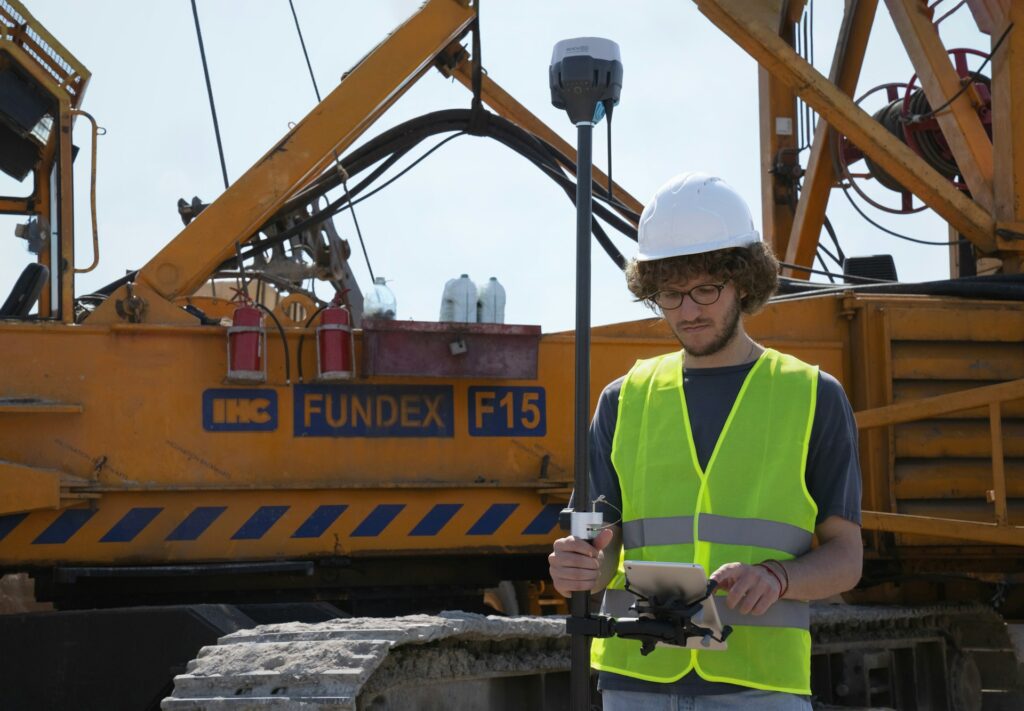
We are reader-supported. When you buy through links on our site, we may earn an affiliate commission.
Growth is critical in any industry as you develop skills, gain on-the-job experience and seek more responsibility. What opportunities are available in the construction industry? Here’s an expert-backed guide to career advancement opportunities in the building sector.
5 Construction Career Advancement Opportunities
Regardless of your construction niche, career advancement is in your hands, thanks to the numerous available avenues. Industry professionals say you should leverage these strategies to advance in the building business.
1. Further Your Education
How can you open the door to higher-paying jobs with more responsibilities? In many industries, the first step is to further your education by obtaining certification or a degree in your desired field. Certifications make you a more attractive job candidate and can increase your salary between 5% and 20%, so they’re worth serious consideration.
Jay Sanders, a licensed contractor and the owner of Castle Dream Construction, says education is an excellent route for building professionals to take the next step in their careers.
“Pursuing further education, such as a degree in construction management or related certifications, can open doors to higher-level positions,” he said.
The best degree program or certification depends on your niche and ultimate goals. However, numerous options can help you find good-paying positions. Some of these options include:
- LEED Green Associate: Sustainability is a pressing issue for the construction industry, so now is an excellent time to obtain certification in Leadership in Energy and Environmental Design (LEED). This accreditation from the U.S. Green Building Council (USGBC) shows you’re ready to tackle green building projects. About 82% of construction companies have sustainability teams, so now is a great time to get green.
- Certified Construction Manager: Another career advancement option is being a construction manager. This position might come later in your career, as it requires eight years of experience in construction or design with four years of leadership experience.
2. Consider Management Positions

Management is an excellent option if you enjoy working with people, helping employees grow and implementing your vision into projects. Joshua Parrish, a residential contractor and co-owner of Hammer and Handsaw, says you’ll need experience on job sites before hopping into this role. You may even level up with certification to put yourself over the top.
“After gaining some field experience in construction, one may choose to transition into project management,” he said. “Some may decide to earn a PM certification for this role, but it’s not necessary.”
Field experience is an essential tool for career advancement opportunities in construction, as your job will open different avenues in your development. Hailey Harris, the business development manager of License Lookup, says that getting in on the ground floor leads to middle management and, eventually, the upper levels.
“From my experience, starting on the tools can lead to roles in site management, project management, and eventually into senior leadership positions such as construction manager or director,” she said.
3. Establish Your Specialization
Climbing the ladder in the construction industry and other sectors means establishing yourself and demonstrating your value. What unique abilities do you bring to a construction company? Finding a specialization can help your career advancement goals because it can bring lucrative opportunities. Local contractors will rely on you for support if you’re the only one in your area in a specific niche.
“Another option could be to develop expertise in a certain area of construction to set yourself apart and establish yourself as a leader in the niche,” Parrish said.
Parrish speaks from experience as he transitioned into residential construction as the next step in his career. His advancement demonstrates why you should keep an open eye on other opportunities in the building sector.
4. Stay Flexible in the Construction Industry
Imagine you enter the construction industry at 22 years old as a laborer. By the time you hit 40, you’re sitting in an office as a project manager in a New York City firm. How can you make the jump? You need to stay flexible and look for other opportunities to advance your career, even if it means completely changing the views from your desk. Sanders says experience can help you transition from the job site to the suit-and-tie life.
“Skilled tradespeople with experience, such as carpenters, can move into white-collar roles within the industry, leveraging their on-the-ground knowledge,” he said.
If you like your niche, you can remain there as long as you’d like. Be mindful of the opportunities to move laterally and make your mark with expert knowledge. Daniel McKenzie, owner of Fence Pros Directory, says he transitioned within his niche to take advantage of more opportunities.
“Consider lateral moves for broader expertise,” McKenzie said. “I transitioned from residential to commercial fencing.”
5. Adapt to Technology

How else can you remain flexible and leverage career advancement opportunities? Nowadays, it’s adapting to technology. Each year, research and development brings new devices, software and best practices, so stay on top of industry innovations. McKenzie says you should embrace technology in project management to heighten efficiency, thus reducing costs and impressing all stakeholders.
Artificial intelligence (AI) and building information modeling (BIM) offer incredible opportunities for modern construction professionals as they make projects easier. For example, AI can assist in generative building design and heighten on-site safety for your laborers.
Martin Heaton, director of Heaton Manufacturing Ltd., says learning the newest digital technologies carves a niche and lets you be a better construction professional.
“Digital transformation, including AI and BIM, offers unique pathways for those keen to merge technical expertise with construction.
What Soft Skills Do Construction Professionals Need?
Hard skills are critical in the construction industry but are only one of the ways to reach the top. Soft skills are often underestimated and can make a difference in getting your desired job. Here are a couple of abilities you need to know.
Networking

Working your way up the ladder boils down to personal relationships. What do your colleagues think of you? Form relationships with those at work and in the industry to increase your network. Harris says this strategy opens the door to more opportunities in leadership.
“Engaging in networking through industry associations and taking on leadership roles in projects can also significantly enhance career progression prospects,” she said.
Personal Growth
Your growth as a construction professional is vital for success, but you can’t forget about your journey as a person. How has your perspective changed from the first day at work until now? Heaton says his life path has taught him as much as any workshop or conference.
“Personal growth in construction is as much about acquiring new skills as it is about contributing to transformative projects,” he said. “For me, leading by example and fostering a culture of innovation has been key to advancing not only my career but also the ambitions of my team.”
Leveraging Career Advancement Opportunities
Growth is essential to any career, giving yourself more expertise and better-paying positions as you climb the ladder. While there may be obstacles, you can break down the walls using expert advice.










